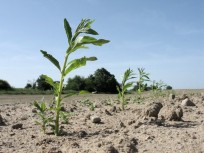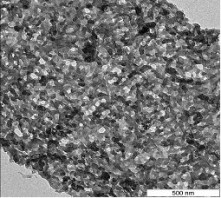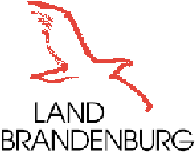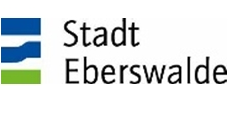Joined Research Project Biochar Brandenburg
Utilization of biochar from hydrothermal carbonization as a soil additive for the establishment of fast growing tree species

Background
Hydrothermal carbonization (HTC) is a young and innovative field of science in Brandenburg, which originated from the basic research group around Mr. Antonietti (Max Planck Institut Potsdam). The principle is related to the natural process of coalification, where coal develops under pressure, increased temperatures and anaerobic conditions from biomass.
The HTC method requires only basic equipment: a pressure vessel, where organic matter, water and a catalyst are heated for about 12 hours at 180 degrees under anaerobic conditions. The end products are biochar and a liquid phase. Besides carbon, the end product also contains all other recyclables stored in biomass, like nutrients and water. The conversion process of biomass to biochar has a carbon efficiency of nearly 100 percent, which means that almost all of the carbon of the raw material is stored in the biochar and does not escape as a greenhouse gas.
Biochar can be used as fuel or raw material for further products. Another possibility is its use for soil melioration, since it is composed of persistent carbon fractions with a large surface and high porosity, which, in long term, are able to improve the water and nutrient storing capacity of the soil.
When brought into the soil, biochar prevents the emissions of CO2 which would occur when uncharred organic matter is decomposed, due to its higher resistance against decomposition in soil. By thus fixing CO2 in the soil it is possible to withdraw carbon from the atmosphere. This results not only in a CO2-neutral but even CO2-negative process, which is an attractive alternative to the Carbon Capture and Storage procedure and offers new opportunities in climate protection.
Project Goals
The applicability of biochar as a soil additive for the establishment of fast growing tree species in short rotation will be reviewed.
By combining the innovative field of knowledge of HTC with the cultivation of fast growing tree species a contribution to climate protection and sustainable development of rural areas is made by carbon sequestration and valorization of low-yield soils.
On marginal sites that have been revalued with biochar, biomass for energetic use can be produced without being in competition with food production.
An interdisciplinary oriented network "biochar Brandenburg" will be established which includes universities, research institutions and enterprises, public institutions and industry as its partners to strengthen research skills and knowledge and to ensure practical relevance.
Worksteps
Potential analysis of suitable raw material in the region for hydrothermal carbonization
Identification of usable agricultural fallow sites for valorization by energy wood production with use of biochar in Brandenburg
Production and optimization of biochar as soil additive from the raw materials (Max-Planck-Institut Potsdam)
Testing of produced biochar as soil additive in relation to water and nutrient storage capacity
Planting trials with fast-growing tree species on existing experimental plots of BIODEM and other sites


Project partner
Max-Planck-Institut f√ľr Kolloid- und Grenzfl√§chenforschung
Palaterra GmbH & Co. KG
Addlogic Labs GmbH
Carbon Solutions Deutschland GmbH
Investor Center Uckermark GmbH
Nationalpark Unteres Odertal
Contact
HNE Eberswalde. Hochschule f√ľr nachhaltige Entwicklung Eberswalde
University of Applied Sciences
Alfred-Möller Str. 1
16225 Eberswalde
Prof. Dr. Dieter Murach
Project Leader
Tel: +49 (0) 3334 / 65418
B.Sc. Eva-Maria Roth
Project Coordinator
Tel: +49 (0) 3334 / 65466

Investition in Ihre Zukunft

EUROP√ĄISCHE UNION Europ√§ischer Sozialfonds

Ministerium f√ľr Wissenschaft Forschung und Kultur
Supported by the Ministry of Science, Research and Culture from funds of the European Social Fonds and Brandenburg










